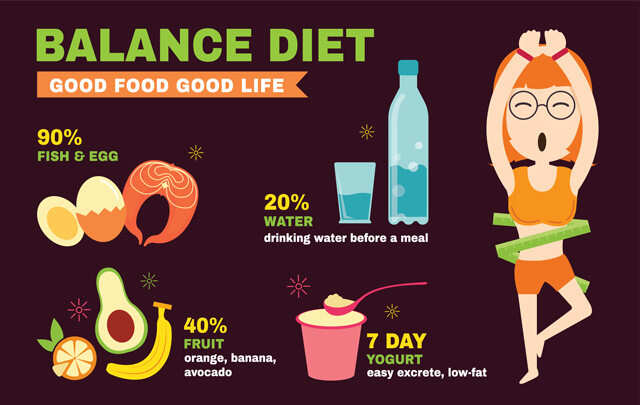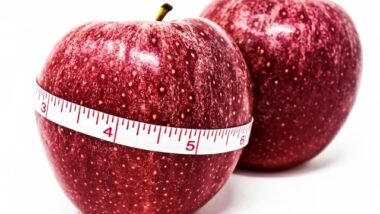Losing weight naturally depends on various factors like diet, exercise, and metabolism. It isn’t guaranteed without active effort.
Maintaining a healthy weight involves balancing calorie intake and physical activity. A nutritious diet rich in fruits, vegetables, lean proteins, and whole grains is essential. Regular physical activity, such as walking, jogging, or strength training, helps burn calories and build muscle.
Staying hydrated, getting adequate sleep, and managing stress also play significant roles. Individual metabolism varies, affecting how quickly one can lose weight. Consulting a healthcare professional can provide personalized advice. While some people may lose weight naturally, others might need to make specific lifestyle changes to see results. Consistency and dedication are key to achieving and maintaining a healthy weight.
Natural Weight Loss Myths
Many people believe in natural weight loss myths. These myths can be misleading. Understanding the truth can help you make better choices.
Common Misconceptions
- Skipping Meals Helps: Skipping meals can slow your metabolism.
- All Calories Are Equal: Not all calories are the same. Nutrient-rich foods are better.
- Detox Diets Work: Your body detoxifies itself. Special diets aren’t needed.
- Exercise Alone Works: You need a balanced diet too.
Science Vs. Belief
Science often disproves common beliefs about weight loss. Let’s examine the facts.
| Belief | Scientific Fact |
|---|---|
| Skipping breakfast helps lose weight. | Skipping breakfast can lead to overeating later. |
| Carbs are bad for you. | Your body needs carbs for energy. |
| Eating fat makes you fat. | Healthy fats are essential for your body. |
| Only gym workouts matter. | Everyday activities also burn calories. |
Understanding these myths and facts can help in your weight loss journey. Choose scientifically proven methods for better results.

Credit: www.youtube.com
Role Of Metabolism
Understanding the role of metabolism is crucial for weight management. Metabolism influences how the body converts food into energy. It affects how quickly you burn calories. Let’s delve into what metabolism is and how you can boost your metabolic rate.
What Is Metabolism?
Metabolism refers to all chemical processes in the body. These processes keep you alive and functioning. It includes breaking down nutrients from food. It involves converting these nutrients into energy. This energy is used for bodily functions like breathing and digestion.
Metabolism consists of two main types:
- Catabolism: Breaks down molecules to release energy.
- Anabolism: Uses energy to build cell components.
Both types are essential for maintaining life. They ensure your body works efficiently.
Boosting Metabolic Rate
Boosting your metabolic rate can aid in weight loss. A higher metabolic rate means more calories burned. Here are some ways to boost it:
- Exercise Regularly: Physical activity increases muscle mass. More muscle means a higher metabolic rate.
- Eat Protein-Rich Foods: Protein requires more energy to digest. This increases your metabolic rate temporarily.
- Stay Hydrated: Water helps the body process calories. Being dehydrated can slow down metabolism.
- Get Enough Sleep: Lack of sleep can lower your metabolic rate. Aim for 7-8 hours of sleep each night.
- Drink Green Tea: Green tea contains antioxidants. These can enhance metabolism.
Implementing these steps can help you naturally lose weight. Remember, consistency is key. Small changes can lead to significant results over time.
Healthy Eating Habits
Adopting healthy eating habits can help you lose weight naturally. These habits include a balanced diet and portion control. They are simple yet effective strategies for weight loss.
Balanced Diet
A balanced diet includes all the essential nutrients your body needs. This means eating a variety of foods from different food groups. Here is a simple table to guide you:
| Food Group | Examples |
|---|---|
| Fruits | Apples, Bananas, Berries |
| Vegetables | Carrots, Spinach, Broccoli |
| Proteins | Chicken, Beans, Tofu |
| Grains | Whole Wheat Bread, Brown Rice, Oats |
| Dairy | Milk, Yogurt, Cheese |
Eating a variety of foods ensures you get a range of nutrients. This keeps your body healthy and energized.
Portion Control
Portion control is about eating the right amount of food. It helps you avoid overeating, which can lead to weight gain. Here are some tips:
- Use smaller plates to help control portions.
- Fill half your plate with vegetables.
- Measure your food to understand portion sizes.
- Eat slowly to give your body time to feel full.
Being mindful of portion sizes can make a big difference. It helps you consume fewer calories and lose weight naturally.
Exercise And Physical Activity
Exercise and physical activity play a crucial role in natural weight loss. Engaging in regular physical activities can help burn calories, increase metabolism, and improve overall health. To achieve the best results, it’s important to incorporate different types of exercises and create a consistent routine.
Types Of Exercise
There are various types of exercises that you can include in your routine:
- Cardiovascular Exercises: Activities like running, swimming, and cycling. These help increase your heart rate and burn calories.
- Strength Training: Lifting weights or using resistance bands. These exercises build muscle and boost metabolism.
- Flexibility Exercises: Yoga and stretching. These improve your flexibility and reduce the risk of injury.
- High-Intensity Interval Training (HIIT): Short bursts of intense activity followed by rest. This method is effective for burning calories quickly.
Creating A Routine
Consistency is key to achieving weight loss through exercise. Follow these steps to create an effective routine:
- Set Realistic Goals: Start with achievable targets, like exercising three times a week.
- Mix It Up: Include various types of exercises to keep things interesting.
- Schedule Your Workouts: Plan your exercise sessions at a convenient time each day.
- Track Your Progress: Use a journal or app to monitor your workouts and improvements.
- Stay Motivated: Find a workout buddy or join a fitness class to stay engaged.
By incorporating different types of exercises and creating a consistent routine, you can naturally lose weight and improve your overall health. Remember to listen to your body and make adjustments as needed.
Mindful Eating
Mindful eating is a powerful tool for natural weight loss. It encourages awareness of eating habits and food choices. By focusing on the present moment, you can develop a healthier relationship with food.
Benefits Of Mindfulness
Mindfulness improves digestion and reduces overeating. It helps you recognize hunger and fullness cues. This practice can lead to better food choices and improved portion control.
Studies show that mindful eating can reduce emotional eating. People often eat due to stress or boredom. Mindfulness helps break this cycle, promoting healthier eating habits.
Techniques To Practice
- Eat slowly and savor each bite.
- Chew thoroughly to aid digestion.
- Eliminate distractions like TV or phone while eating.
- Take time to appreciate your meal’s texture and flavor.
- Listen to your body’s hunger and fullness signals.
You can also practice breathing exercises before meals. This helps calm the mind and body. Consider keeping a food journal to track your eating habits. Write down what you eat and how you feel. This can provide insights into your eating patterns.
Mindful Eating Table
| Technique | Description |
|---|---|
| Eat Slowly | Savor each bite to enjoy your food fully. |
| Chew Thoroughly | Chew each bite to aid digestion and feel fuller. |
| Eliminate Distractions | Turn off TV and put away your phone during meals. |
| Appreciate Flavors | Notice the texture and taste of your food. |
| Listen to Signals | Pay attention to hunger and fullness cues. |
Remember, mindful eating is a journey, not a destination. Start with small changes and build on them. The benefits will follow.
Credit: www.quora.com
Importance Of Sleep
Sleep plays a crucial role in overall health and well-being. It affects weight loss, energy levels, and mental clarity. Understanding the link between sleep and weight loss can help you make better lifestyle choices.
Sleep And Weight Loss
Quality sleep helps regulate hormones that control hunger. When you don’t get enough sleep, your body produces more ghrelin, a hormone that increases appetite. At the same time, levels of leptin, a hormone that signals fullness, decrease. This imbalance can lead to overeating and weight gain.
Here are some key points on how sleep impacts weight:
- Hormonal Balance: Proper sleep helps maintain balanced hunger hormones.
- Metabolism: Quality sleep supports a healthy metabolism.
- Cravings: Poor sleep increases cravings for unhealthy foods.
In short, adequate sleep is essential for weight management.
Improving Sleep Quality
Improving your sleep quality can be achieved through simple lifestyle changes. Here are some effective tips:
- Establish a Routine: Go to bed and wake up at the same time every day.
- Limit Screen Time: Avoid screens at least one hour before bed.
- Create a Sleep-Friendly Environment: Keep your bedroom dark, cool, and quiet.
- Exercise Regularly: Physical activity can promote better sleep.
- Watch Your Diet: Avoid heavy meals and caffeine before bedtime.
By following these tips, you can enhance your sleep quality and support your weight loss journey.
Managing Stress
Stress can impact your weight loss journey. Understanding and managing stress is key. Let’s explore how stress affects weight and ways to reduce it.
Stress And Weight Gain
Stress triggers the release of cortisol. Cortisol is a hormone that can lead to weight gain.
High cortisol levels increase appetite. This makes you crave high-calorie foods.
Stress also disrupts sleep. Poor sleep further contributes to weight gain.
Managing stress can help you maintain a healthy weight.
Stress Reduction Tips
Here are some tips to reduce stress:
- Exercise regularly: Physical activity lowers cortisol levels.
- Practice mindfulness: Meditation and yoga reduce stress.
- Maintain a healthy diet: Balanced meals support mental health.
- Get adequate sleep: Aim for 7-9 hours per night.
- Stay connected: Social support reduces stress.
Implement these tips to manage stress. This will help you naturally lose weight.
Tracking Progress
Tracking your weight loss journey is crucial for success. It helps you stay motivated and see tangible results. This section will guide you on how to track your progress effectively.
Setting Realistic Goals
Setting realistic goals is the first step in tracking progress. Start with small, achievable targets. For example:
- Lose 1-2 pounds per week
- Walk 30 minutes daily
- Drink 8 glasses of water
These goals should be specific and measurable. Write them down and review them regularly.
Monitoring Tools
Use monitoring tools to track your progress. These tools can include:
| Tool | Description |
|---|---|
| Weight Scale | Track your weight daily or weekly. |
| Fitness Apps | Log your food intake and exercise. |
| Measuring Tape | Measure your waist, hips, and other areas. |
These tools provide data on your progress. They help you adjust your plan if needed.
Tracking Progress is key to weight loss. Follow these steps to stay on track.

Credit: www.femina.in
Frequently Asked Questions
Is It Possible To Lose Weight Naturally?
Yes, you can lose weight naturally. Eat a balanced diet, exercise regularly, stay hydrated, and get enough sleep. Avoid processed foods and sugary drinks.
How Long Does It Take To Lose Weight Naturally?
Losing weight naturally can take several weeks to months. Aim for 1-2 pounds per week through diet and exercise.
At What Age Do You Naturally Lose Weight?
People often naturally lose weight after age 60 due to muscle loss and a decrease in appetite.
Will Your Body Naturally Stop Losing Weight?
Yes, your body can naturally stop losing weight due to metabolic adaptation. This is known as a weight loss plateau.
Conclusion
Achieving natural weight loss is possible with consistent healthy habits. Focus on balanced nutrition, regular exercise, and sufficient sleep. Remember, patience and perseverance are key. Every step towards a healthier lifestyle contributes to your overall well-being. Stay dedicated and the results will follow, leading to a happier, healthier you.


